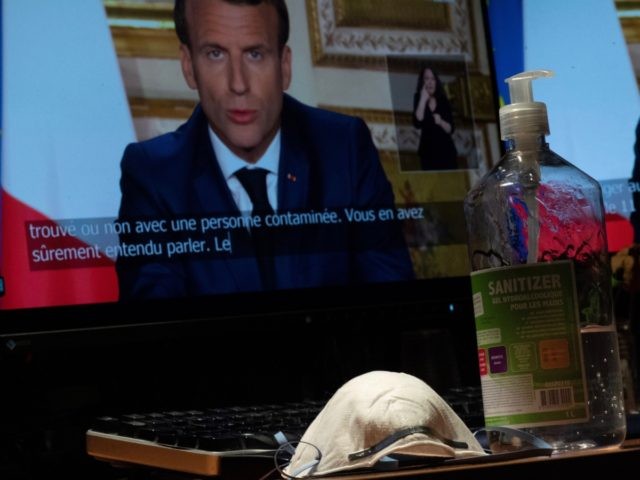French President Emmanuel Macron has announced that the emergency measures to stem the spread of the Wuhan virus will be kept in place for an additional month while admitting that the government was not prepared for the pandemic.
In his fourth national address since the start of the coronavirus crisis, the French leader said on Monday evening that the containment measures, which began nearly one month ago, will continue until at least May 11th.
“I fully appreciate the effort I ask of you during the next four weeks. The rules laid down by the government must continue to be respected. They are showing their effectiveness and should not be strengthened or lightened,” Macron said, according to the French newspaper Le Monde.
“The epidemic is not yet under control,” he said while claiming that the government’s efforts had resulted in a decrease in the number of daily deaths and the number of people in intensive care units.
Mr Macron did go on to admit that there had been “flaws, inadequacies, and failures” in the government’s overall strategy to contain the virus and its ability to distribute masks and administer tests.
“Like you, I have still seen too much slowness, unnecessary procedures. Weaknesses also in our logistics. We will draw all the consequences in due course,” the French president said.
In his speech, Mr Macron said that by May 11th, the government will start to open nurseries, lower schools, middle schools, and high schools but that universities will remain closed until at least the summer term. He also cautioned that public spaces such as bars, restaurants, theatres, cinemas, cafes, and hotels would remain closed until further notice.
In response to the Chinese-born virus, France enacted some of the most draconian measures in Europe, going as far as to require citizens to fill out a government form to go outside their homes.
Despite the strict rules, the country has recorded the third-highest number of deaths in Europe, with some 14,967 people dying from coronavirus to date.
In contrast to France, countries across the continent have begun easing lockdown measures to prevent further economic fallout. Spain and Italy, the two hardest-hit European nations, announced that they would be permitting workers in specific key industrial sectors to go back to their jobs, according to the BBC.
The government of Austria has also announced that it would be easing restrictions for small stores on Tuesday and that shopping malls and bigger shops will be allowed to be open by May 1st, Deutsche Welle reports.
Follow Kurt on Twitter at @KurtZindulka

COMMENTS
Please let us know if you're having issues with commenting.